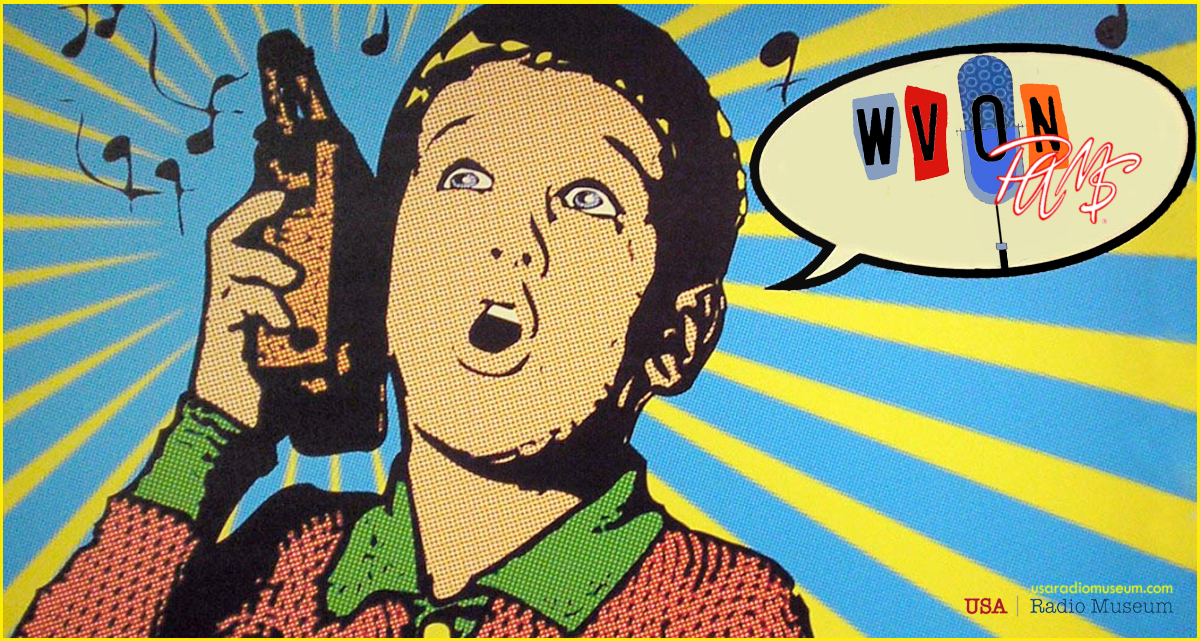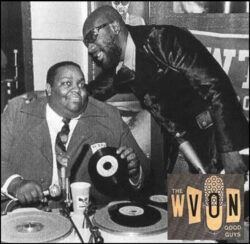WVON: A Legacy in Chicago's Black Community and the Soul of the Airwaves When discussing the history of soul music and its role in shaping Afri
WVON: A Legacy in Chicago’s Black Community and the Soul of the Airwaves
When discussing the history of soul music and its role in shaping African-American culture, one radio station stands out: WVON (“The Voice of the Negro”) in Chicago. Founded in 1963 by Leonard and Phil Chess of Chess Records, WVON was more than just a radio station—it was a cultural beacon for Chicago’s Black community, amplifying voices, launching careers, and championing social change during pivotal decades.
From its inception, WVON was a pioneer, blending the dynamic sounds of Chicago soul music with insightful news coverage and commentary during the Civil Rights Movement. The station’s call letters, iconic programming, and talented DJs made WVON a household name and a trusted voice in the African-American experience. Today, WVON’s legacy remains as strong as ever, continuing to serve as a pillar of empowerment and community.
The Founding of WVON
WVON’s story begins with Leonard and Phil Chess, founders of Chess Records, who sought to extend their influence from recording studios to the airwaves. They purchased WHFC, a small station in Harvey, Illinois, and transformed it into WVON, broadcasting on 1450 AM. Their goal was to create a station dedicated to African-American listeners—something revolutionary at the time.
The Chess brothers built WVON’s reputation on a mix of musical excellence and community engagement. By leveraging their ties to the Chicago music scene, WVON quickly became the go-to station for soul music fans. Notably, the station played an instrumental role in promoting local artists like The Impressions, Major Lance, Jerry Butler, Walter Jackson, and the Ramsey Lewis Trio. Thanks to WVON, many Chicago-based musicians gained national recognition and chart success, cementing Chicago’s place in the pantheon of soul music.
The Good Guys and the Soul Connection
WVON’s success wasn’t just about music—it was also about the people behind the microphone. The station’s legendary lineup of DJs, affectionately known as “The Good Guys,” included Herb Kent “The Cool Gent,” E. Rodney Jones, Pervis Spann, Bill “Butterball” Crane, and others. These personalities brought charisma, humor, and a deep connection to their audience, making WVON not just a station but an integral part of daily life for many Chicagoans.
Bill “Butterball” Crane, for instance, made his way to WVON after his tenure at Detroit’s WCHB 1440, later continuing his journey at Milwaukee’s WNOV 850. His contributions played a key role in enhancing the Midwest’s vibrant soul radio landscape. DJs like Crane embodied WVON’s unique ability to merge engaging entertainment with profound cultural relevance, serving the vast and dynamic audience of Chicago’s metropolitan community.
WVON 1450 | Bill “Butterball” Crane | August 8, 1967
Audio Digitally Restored by USA Radio Museum
WVON also had the unique distinction of premiering songs from local artists before they gained widespread popularity. Curtis Mayfield and The Impressions, Major Lance, and others were among the first to benefit from WVON’s influence, as the station became known for breaking hits that captured the essence of Chicago soul.
The Chicago Soul Scene
The Chicago soul scene of the 1960s was a vibrant and influential movement. With its roots in gospel, rhythm and blues, and jazz, Chicago soul was characterized by smooth vocals, lush arrangements, and heartfelt lyrics. The city’s “Record Row” on South Michigan Avenue was home to iconic labels like Chess Records, Vee-Jay Records, and Curtom Records, founded by Curtis Mayfield.
WVON played a pivotal role in this thriving music scene. By promoting hits like “People Get Ready” by The Impressions, “The Monkey Time” by Major Lance, and “Love Makes a Woman” by Barbara Acklin, “Oh, What A Night” by The Dells, WVON became the heartbeat of Chicago soul. It wasn’t just a radio station; it was a cultural hub that reflected the hopes, struggles, and triumphs of Chicago’s African-American community.
PAMS Jingles and WNOV’s Role
 The rise of WVON coincided with a creative chapter in radio branding, driven by companies like PAMS (Production Advertising Merchandising Service) in Dallas. PAMS specialized in crafting jingles, including the distinctive Series 7 package designed specifically for R&B stations like WNOV in Milwaukee. These jingles were tailored to the unique sound and audience of soul stations, offering a rare glimpse into an era when radio branding was in its prime.
The rise of WVON coincided with a creative chapter in radio branding, driven by companies like PAMS (Production Advertising Merchandising Service) in Dallas. PAMS specialized in crafting jingles, including the distinctive Series 7 package designed specifically for R&B stations like WNOV in Milwaukee. These jingles were tailored to the unique sound and audience of soul stations, offering a rare glimpse into an era when radio branding was in its prime.
However, R&B stations like WVON and WNOV often opted for minimal jingle usage, focusing instead on the music and authentic connections fostered by their DJs. Unlike Top 40 stations, which relied heavily on elaborate jingles for branding, R&B stations typically used a few basic station IDs or identifiers. This stylistic choice reflected a cultural emphasis on letting the music—and the station’s mission—shine through.
PAMS | WVON 1450 | Series # 28, #34, #35
Audio Digitally Restored by USA Radio Museum
While PAMS discontinued its R&B-specific packages after Series 7, the jingles created for WNOV remain a nostalgic reminder of soul radio’s golden age. WNOV, often seen as a sister station to WVON, mirrored Chicago’s dedication to promoting local artists and fostering community engagement. Together, these stations created a regional powerhouse of soul radio, blending entertainment with activism and cultural pride.
From Music to Talk: WVON’s Evolution
As musical tastes evolved, so did WVON. By the 1980s, the station shifted its focus from soul music to talk programming, addressing issues like politics, social justice, health, and entrepreneurship. This transition allowed WVON to remain relevant and impactful, serving as “The Talk of Chicago” for generations to come.
Today, WVON broadcasts on 1690 AM and has embraced digital platforms like VONtv, expanding its reach to online audiences. Through its programming, the station continues to empower, educate, and inspire listeners, maintaining its role as a pillar of Chicago’s Black community.
WVON’s Enduring Legacy
The legacy of WVON is nothing short of extraordinary. From its genesis as the “Voice of the Negro” to its evolution as “The Talk of Chicago,” WVON has consistently amplified African-American voices, music, and experiences. It nurtured the rise of Chicago’s iconic soul artists, championed the fight for civil rights, and became a trusted companion for countless listeners navigating pivotal moments in history.
Even with a shift from music to talk, WVON remains the pulse of Chicago’s Black community, inspiring change, fostering unity, and celebrating identity. It stands as a living testament to the enduring power of radio and its ability to shape culture for generations.
__________________
A USARM Viewing Tip: On your mobile or tablet device? Finger-tap the above (Bill Crane) image inside the post and stretch image across your device’s screen for LARGEST digitized view.



Wow…what a great tribute to Chicago black radio in the late 1960s. I lived in the Detroit market at that time and listened to WJLB 1400, WCHB 1440, WCHD 105.9 and WGPR 107.5 during that era when I wished to listen to black programming. These stations seemed to devote more airtime to the DJs than did WKNR, CKLW or WXYZ. As was mentioned in this post, they didn’t use as many jingles. But I do remember “14-40 WCHB”.
I will provide other memories of Detroit radio in other posts. Again, this was a super good, top quality audio post.